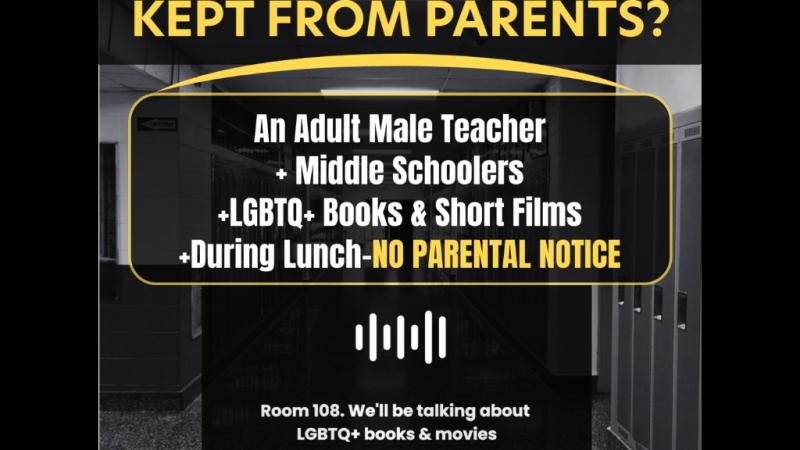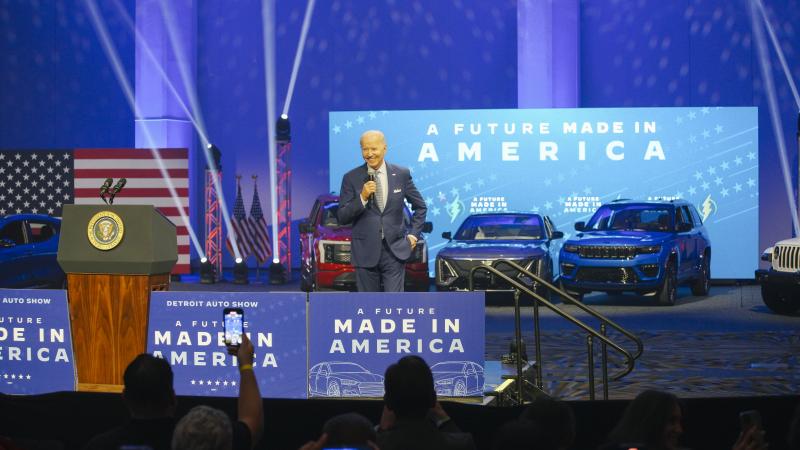Iran nuclear deal being pushed by Biden weaker than original version under Obama, analysts say
"This is diplomatic malpractice to the point of being criminal," said Gabriel Noronha, who served as a special adviser on Iran at the State Department.
It's become common to refer to President Joe Biden's efforts to "revive" the 2015 nuclear deal with Iran, from which his predecessor withdrew the U.S. in 2018. Indeed, Biden administration officials have for months defended their efforts to seek a "mutual return to compliance" with the accord to curb Iran's nuclear program in exchange for providing large-scale sanctions relief.
Such terminology, however, is inaccurate and even misleading, according to experts and former U.S. officials who spoke to Just the News. They warned the current deal being negotiated is an entirely different arrangement than what was finalized under former President Barack Obama, containing more U.S. concessions and serving Iran's interests in dangerous and enduring ways.
"It's structurally and technically a very different deal," said Gabriel Noronha, who served as a special adviser on Iran at the State Department. "It's more advantageous to Iran."
Noronha, who's had access to Iranian government documents and earlier this year was leaked key details of the nuclear talks by U.S. and European officials, pointed first and foremost to the type and breadth of sanctions on Iran that would be lifted under a deal.
According to a Foundation for Defense of Democracies analysis, the new deal would give Iran access to $274 billion in its first year and at least $1 trillion by 2030.
Experts told Just the News that Iran would allocate these funds as it did the first time, using the infusion of cash to increase its military budget and provide a windfall to terrorist groups and its network of proxies.
But this time, much of the most extensive — and controversial — sanctions relief would be unrelated to Iran's nuclear program.
Most notably, the U.S. is expected to abrogate multiple Trump-era executive orders, which will lift sanctions on dozens of individuals and entities without congressional review, according to people familiar with the matter. Most notably, the Biden administration would likely end Executive Order 13876, which imposed sanctions on the Iranian supreme leader's office and a host of Iranian officials accused of terrorism and human rights abuses. These sanctions were unrelated to Iran's nuclear program.
Iran didn't give any concessions in return for Washington's agreement to nix the executive orders, according to Iran International, which obtained a leaked report on remarks by Iran's chief nuclear negotiator, Ali Bagheri-Kani, from a recent closed-door briefing provided to journalists in Tehran.
"It's alarming how the U.S. is preparing to lift non-nuclear sanctions related to human rights, terrorism, ballistic missiles," said Jason Brodsky, policy director of United Against Nuclear Iran. "We're giving more and receiving less in return. As problematic as the 2015 deal was, this is even worse."
The Biden administration has pitched the nuclear deal to Congress and the American people as a narrow nuclear agreement that wouldn't inhibit America's ability to counter Iran's malign non-nuclear behavior.
However, throughout negotiations, Iran has made several demands unrelated to its nuclear program, including the removal of the Islamic Revolutionary Guard Corps (IRGC), an Iranian military force, from the State Department's list of foreign terrorist organizations.
The Biden administration initially made some so-called non-nuclear demands, according to people familiar with the negotiations, such as discussing limits to Iran's ballistic missile program. Iran quickly refused, though, and U.S. negotiators dropped the issue.
In his leaked remarks, Bagheri-Kani reportedly boasted Iran disregarded around 11 deadlines set by the West throughout the negotiations, at one point dismissing top U.S. negotiator Rob Malley's threat to walk away from the talks — and noting Malley ended up staying.
"We take no for an answer, and Iran doesn't," said Noronha. "This is diplomatic malpractice to the point of being criminal. We've completely destroyed the credibility of the West as a negotiating partner with Iran. Any major company would fire you the first or second time for making these negotiating mistakes."
Three U.S. diplomats, including Malley's deputy, Richard Nephew, stepped down from the nuclear talks in late January in protest of concessions to Iran. The officials had wanted the administration to adopt a tougher negotiating stance.
Perhaps the most striking example of the U.S. taking no for an answer was when, according to Iran International, Iran refused to accept a proposal that both countries not seek to kill each other's citizens.
The revelation comes amid an ongoing wave of alleged Iranian plots to murder Americans on U.S. soil.
"How can you negotiate with a country that can't refrain from plotting to kill Americans?" asked Fred Fleitz, a former CIA analyst and senior National Security Council official. "We are making a deal with the devil."
When asked about this and other reported U.S. concessions, the State Department denied conceding anything in negotiations.
"We are not negotiating in public and we are not going to respond to purported leaks from Iran," a State Department spokesperson said. "Reports that we have accepted or are considering new concessions to Iran as part of reentering the 2015 nuclear deal are categorically false."
The spokesperson added the administration is "encouraged" Iran appears to have dropped some of its "nonstarter demands."
One of the U.S. citizens thought to be targeted by Iran is author Salman Rushdie, whom the Iranian government had for years sought to kill over writings it deemed blasphemous. He was stabbed multiple times before a speech in New York this month. Rushdie, 75, is alive but being treated for serious injuries.
A New Jersey man with an image of Iran's supreme leader, Ayatollah Ali Khamenei, as the avatar on his email account was accused of attacking Rushdie. He pleaded not guilty to second-degree attempted murder and second-degree assault after a grand jury indicted him.
Following the attack, Iranian state media castigated Rushdie as an "apostate" responsible for "blasphemous" writings.
Noronha noted that one of the Iranian organizations set to have sanctions lifted under the new nuclear deal is the 15 Khordad Foundation, which offered a multi-million-dollar bounty for Rushdie's murder.
Another issue with the new Iran deal cited by analysts is the U.S. isn't insisting on an extension of the so-called sunset clauses, key limits on Iran's nuclear program that have specific expiration dates within the next decade.
"This deal is much shorter than what was negotiated in 2015," since the sunset clauses are that much closer, said Andrea Stricker, research fellow at the Foundation for Defense of Democracies. "Plus, given how advanced Iran's nuclear program has become, the breakout time to a bomb is much shorter."
Stricker explained that Iran's centrifuges, the machines that enrich uranium to be used for reactors and potentially weapons, won't need to be shipped out of the country or destroyed under the nuclear deal. They can be stored inside Iran.
By maintaining a larger nuclear infrastructure than in 2015, experts explained, Iran will be able to protect itself should the U.S. withdraw from the deal in the future by maintaining the ability to quickly ramp up its nuclear program as much as it wants.
"The structure of the deal is so Iran can go back to extorting the West with nuclear leverage," said Noronha.
Another concern is the prospect of Iran covertly conducting work on nuclear weapons.
"We know they have a covert nuclear program," said Fleitz, citing the vast archive of Iranian nuclear documents taken by Israel in 2018. The cache of documents, stored and hidden in Tehran, contained information on past weapons-related work.
Fleitz also expressed concern about an ongoing investigation by the International Atomic Energy Agency, the United Nations' nuclear watchdog, regarding traces of uranium it found at previously undeclared nuclear research sites three years ago.
"So far, Iran has not given us the technically credible explanations we need to explain the origin of many traces of uranium, the presence of equipment at places," IAEA Director-General Rafael Grossi said Monday.
Many observers fear the Biden administration and European countries hoping to strike a nuclear deal will pressure the IAEA to drop its investigation, which could prove to be a roadblock.
Overall, critics see the new nuclear deal taking shape as one that will be short-lived at best and simultaneously fill Iran's coffers and enlarge its nuclear program.
"Biden had the opportunity to chart a different course, a more durable one with bipartisan buy-in," said Brodsky. "He didn't do that."
The White House didn't respond to a request for comment for this story.














